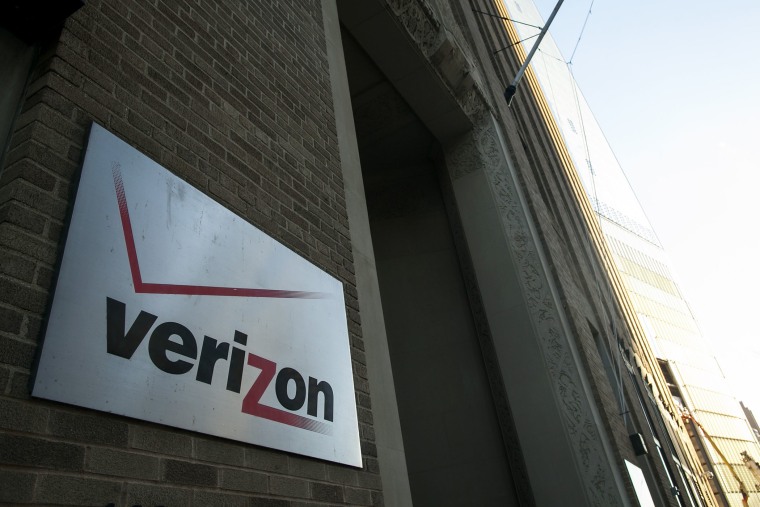People who say they hate paying for cable TV often say they only want to pay for the networks they want to watch — not the bundles of networks pay TV providers require them to buy. Bundles aren't going away anytime soon, since they're the core of the pay TV business. But they are morphing a bit, because the pay TV guys are worried that people might really cut the cord — or, more likely, just never sign up for pay TV at all.
Here's the latest: An offer from Verizon that lets its Fios TV customers buy a "skinny bundle" of TV channels, and then augment it with a variety of "channel packs" — groups of networks with similar themes, like a sports pack that includes ESPN and Fox Sports — that they can swap out each month. They can also buy extra ones for $10 each.
RELATED: Apple CEO Tim Cook: Orders are ‘great’ for Apple Watch
In theory, this gives customers much more flexibility than traditional pay TV bundles.
We've seen other skinny bundles, both from traditional pay TV providers like Comcast* and new digital entrants like Dish's Sling TV, which offers more than a dozen channels over the Web for $20 a month. Apple wants to launch something similar this fall.
But Verizon's mix-and-match offer is the first to offer this kind of flexibility. And in theory, it could appeal to someone who, say, wanted to watch football in the fall, then swap out a sports package for something else in the spring.
People who say they hate paying for cable TV often say they only want to pay for the networks they want to watch — not the bundles of networks pay TV providers require them to buy.
Bundles aren't going away anytime soon, since they're the core of the pay TV business. But they are morphing a bit, because the pay TV guys are worried that people might really cut the cord — or, more likely, just never sign up for pay TV at all.
Here's the latest: An offer from Verizon that lets its Fios TV customers buy a "skinny bundle" of TV channels, and then augment it with a variety of "channel packs" — groups of networks with similar themes, like a sports pack that includes ESPN and Fox Sports — that they can swap out each month. They can also buy extra ones for $10 each.
In theory, this gives customers much more flexibility than traditional pay TV bundles.
We've seen other skinny bundles, both from traditional pay TV providers like Comcast* and new digital entrants like Dish's Sling TV, which offers more than a dozen channels over the Web for $20 a month. Apple wants to launch something similar this fall.
But Verizon's mix-and-match offer is the first to offer this kind of flexibility. And in theory, it could appeal to someone who, say, wanted to watch football in the fall, then swap out a sports package for something else in the spring.
My hunch is that most people don't want to actively manage their pay TV lineup, even if they say they do. Then again, they haven't really had the chance until now, so we'll see.
Regardless, this seems more like a package designed to help retain Verizon's 5.6 million video subscribers, or perhaps peel some away from the likes of Comcast or Dish Network, than one for people who live on a broadband-only video diet of Netflix, iTunes and whatever else they can find on the Web.
What's more interesting is that Verizon has been able to convince some programmers to let them carve up their bundles, which have been the foundation of their business models for years. Disney, for instance, usually insists that pay TV providers that sell ESPN also sell channels like the Disney Channel; Verizon's deal lets subscribers get one without the other.
That newfound flexibility is yet another sign — HBO Now's launch this month was a big, blinking billboard of its own — that the TV Industrial Complex doesn't think it's nearly as powerful as it was just a couple of years ago. That sound you hear is Reed Hastings rubbing his hands together.
*Comcast owns NBCUniversal, which is a minority investor in Revere Digital, which owns Re/code. CNBC's parent NBC Universal is an investor in Re/code's parent Revere Digital, and the companies have a content-sharing arrangement.
This article first appeared on CNBC.com.
